
5 Steps to Go from Mechanical Engineering to Software Engineering Job
Jul 04, 2025 5 Min Read 23478 Views
(Last Updated)
Are you a mechanical engineer who wants to shift your career towards software engineering? We got you covered!
Shifting a career from non-technical background to technical roles might be daunting sometimes. But, with the right guidance and roadmap you can achieve it easily. In this blog, we will present you with 5 steps to go from mechanical engineering to software engineering job. Along with the detailed roadmap, we will provide you some of the success stories of the engineers who made their way towards software engineering from mechanical. So, let’s get started!
Table of contents
- What is Software Engineering?
- 5 Steps to Go from Mechanical Engineering to Software Engineering Job
- Step 1: Select Your Niche
- Step 2: Learn the Basics of Programming
- Step 3: Build Real-World Projects
- Step 4: Learn Industry-Ready Skills
- Step 5: Apply and Prepare for Job Interviews
- Success stories
- Gowtham Thiyada
- Sudhakar Mirjeli
- Vivek Bansal
- Conclusion
- FAQ
- What skills from mechanical engineering are transferable to software engineering?
- Is formal education required to become a software engineer coming from a mechanical engineering background?
- How long does it typically take to convert from mechanical engineering to software engineering?
- Are there any software engineering certifications or courses recommended for mechanical engineers?
- Are there any networking or job-searching tips for mechanical engineers looking to transition into software engineering?
What is Software Engineering?
Software engineering is a process of designing, developing, testing and maintaining the software applications in a systematic way. Software engineering purely focuses on building digital products such as mobile applications, websites, operating systems and other tools instead of building a physical machine that a mechanical engineer built.
Software engineers take responsibility for the product throughout its life cycle from designing, developing, testing, deploying and maintaining. These tasks can be easy and manageable using various software tools.
In the next section, we will dive into the 5 necessary steps that a mechanical engineer should follow to become a successful software engineer.
5 Steps to Go from Mechanical Engineering to Software Engineering Job
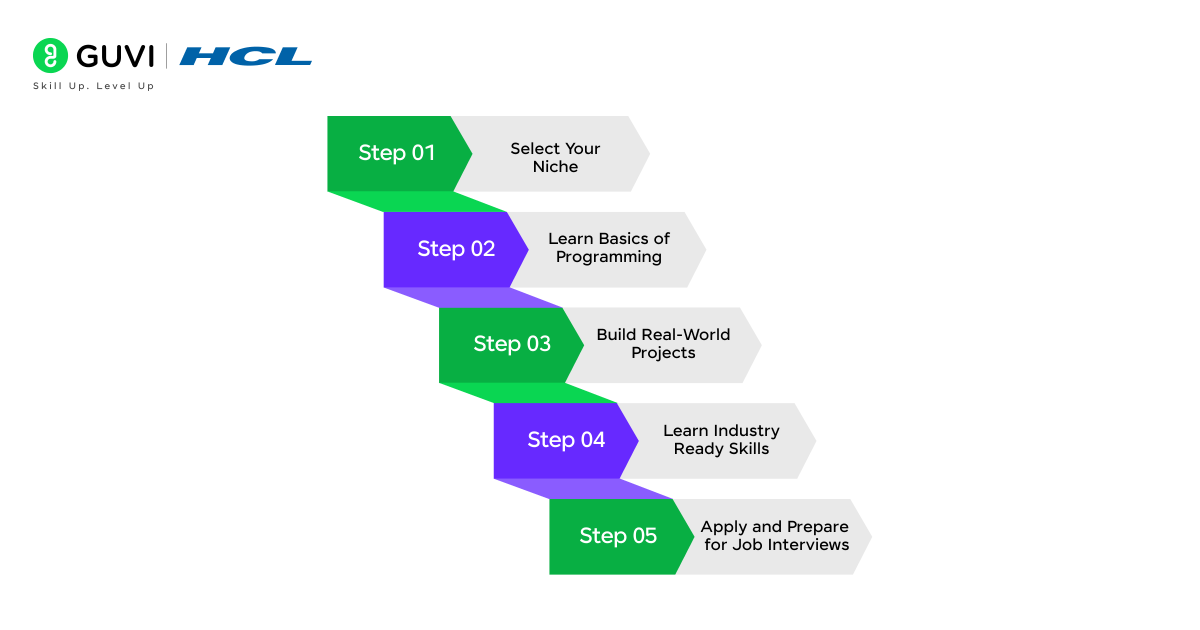
This section summarizes the entire process of shifting from mechanical engineering to software engineering in a simple 5 step process. Lets jump into it without wasting any time.
Step 1: Select Your Niche
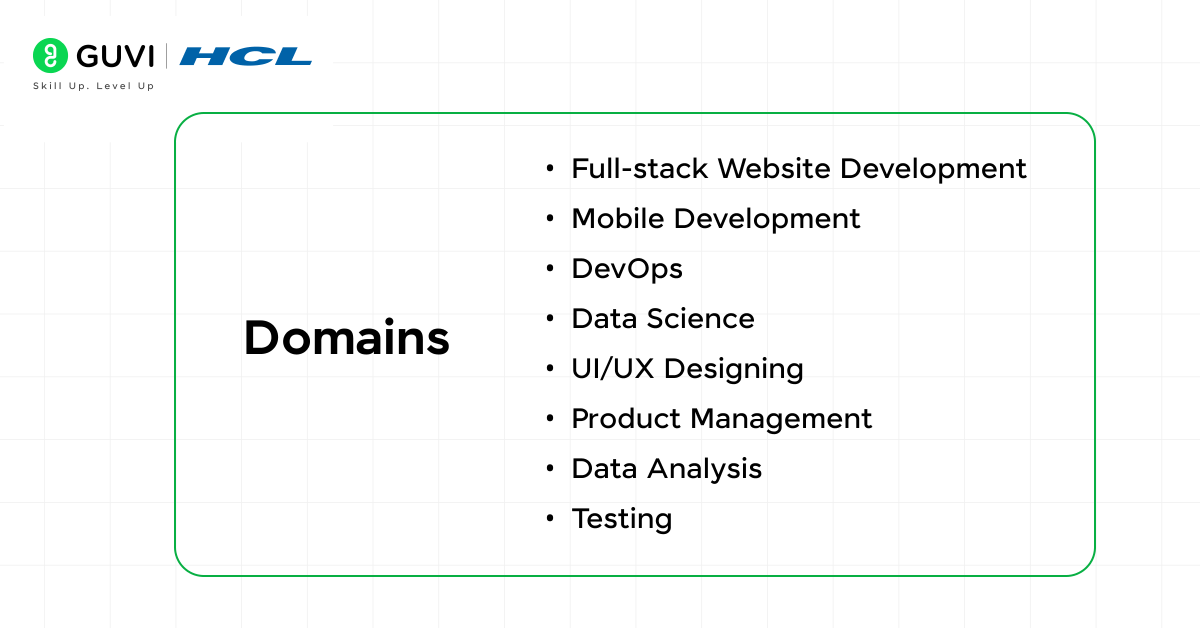
The first step of the process is to select your niche. There are various domains in the software engineering field, such as full-stack development, UI/UX design, product management, and so on. You have to ask yourself which niche suits you the best. One way to find out is to spend some time understanding each domain and see which excites you the most, or go with the hottest trend.
For example, if you are interested in diving deep into more technical things, then full-stack development, DevOps, mobile development, or Data Science might be the best for you. Or if you are a person who doesn’t want to go in-depth on the technicalities, then UI/UX designing, product management, data analysis, or testing might suit you the best. We have explained each domain in simpler terms to make you understand better.
- Full-stack Website Development: It is used to build both the frontend (user interface) and backend (server) of websites.
- Mobile Development: Creates applications for mobile devices such as smartphones, tablets with operating systems like iOS and Android.
- DevOps: It is used to automate and streamline the process of software development and IT operations to enable faster, more efficient, and reliable release of software.
- Data Science: It is used to extract insights and predictions from large data sets using statistics and machine learning algorithms.
- UI/UX Designing: Creates a user interface (UI) and user experience (UX) of digital products to ensure they are both visually appealing and comfortable to use for the end users.
- Product Management: Overseeing the development and lifecycle of a product by aligning business goals, user needs, and technical requirements.
- Data Analysis: It is used to interpret the data to support decision making and identify the trends and patterns using visualization techniques.
- Testing: It is used to check the software for bugs, performance issues, and functionality to ensure it works correctly before release.
Choosing the right niche is really important because each is different from the others. Our advice for you would be to choose one and focus in-depth on that domain to become an expert.
If you are interested in getting started with Data Science and love to learn by reading, you can use Guvi’s FREE E-book on Master the Art of Data Science – A Complete Guide. This e-book is an overall roadmap and explains in detail each step towards a career in data science.
Step 2: Learn the Basics of Programming
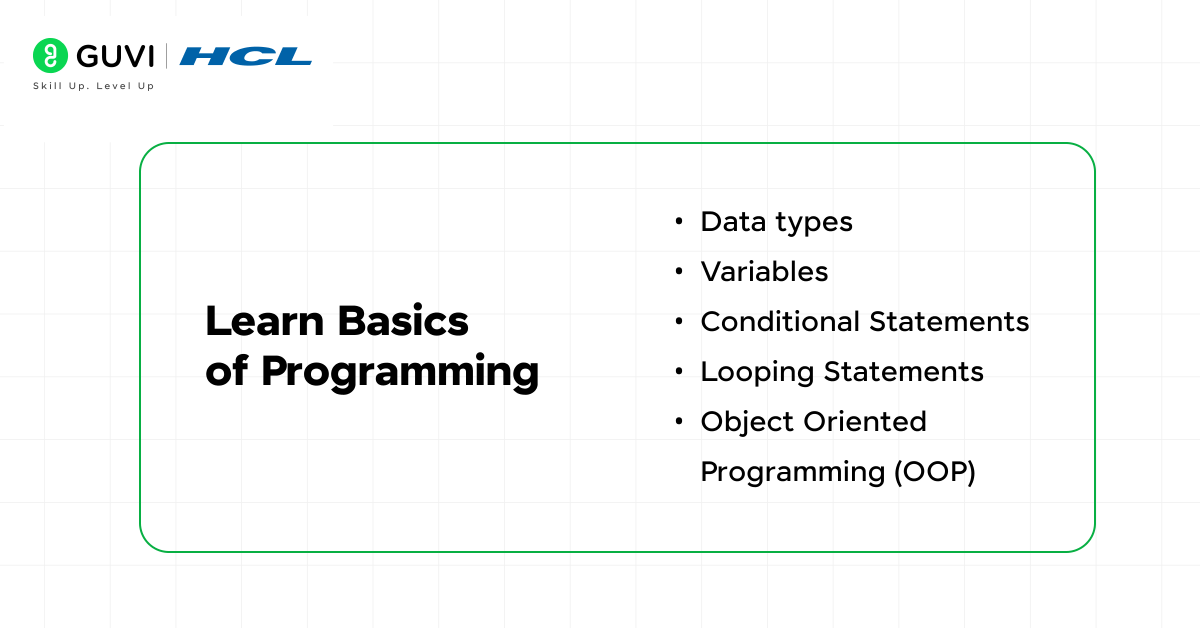
The second step of this process is to learn the basics of programming. When it comes to software engineering, it is mandatory to learn at least the basics of programming. There are various programming languages such as C, C++, Java, Python, Go, JavaScript, etc. You can choose any one of these and start learning it.
Start with the basics such as syntax, data types, variable declarations, conditional statements such as if..else, if…else if…else, switch cases. Later, move to learn classes, objects, polymorphisms, inheritance, encapsulation, abstraction, and other object-oriented programming concepts. These concepts are essential for a software developer role.
Step 3: Build Real-World Projects
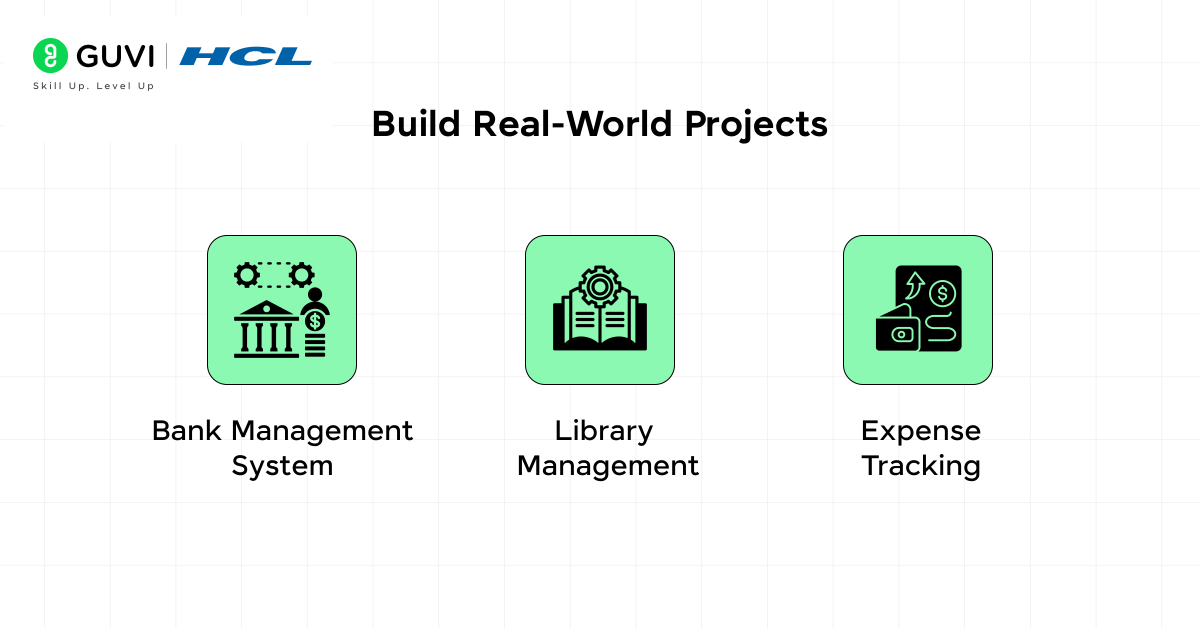
The third step is to build real-world projects using the concepts you’ve learned in step 2. As a beginner, you will tend to get confused about what project you need to build and how to build. There are various blogs, videos, and courses available online to guide you in building your first project.
Some of your first project ideas include a bank management system, a library management system, expense tracking, and much more. These use object-oriented programming concepts to handle the debit, credit, view balance, book details, balance sheet, and expense sheet processes.
If you are confused about picking the project idea, then check out Guvi’s blog on the best project ideas for beginners.
Step 4: Learn Industry-Ready Skills
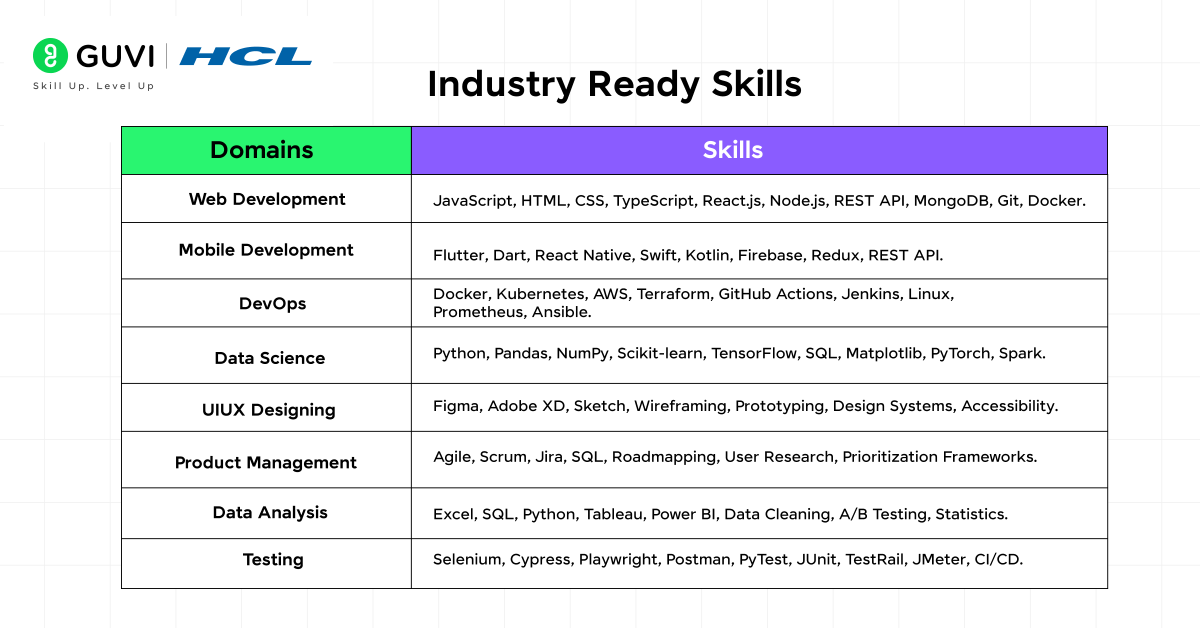
The fourth step is to learn industry-ready skills. The software engineering field is growing rapidly, and every month there new skills are introduced. You have to stay updated on the recent trends and learn the skills without any second thought, then only you will be able to survive in this competitive environment. To make it easy, we have listed the hottest skills for each domain.
- Web Development: JavaScript, HTML, CSS, TypeScript, React.js, Node.js, REST API, MongoDB, Git, Docker.
- Mobile Development: Flutter, Dart, React Native, Swift, Kotlin, Firebase, Redux, REST API.
- DevOps: Docker, Kubernetes, AWS, Terraform, GitHub Actions, Jenkins, Linux, Prometheus, Ansible.
- Data Science: Python, Pandas, NumPy, Scikit-learn, TensorFlow, SQL, Matplotlib, PyTorch, Spark.
- UI/UX Designing: Figma, Adobe XD, Sketch, Wireframing, Prototyping, Design Systems, Accessibility.
- Product Management: Agile, Scrum, Jira, SQL, Roadmapping, User Research, Prioritization Frameworks.
- Data Analysis: Excel, SQL, Python, Tableau, Power BI, Data Cleaning, A/B Testing, Statistics.
- Testing: Selenium, Cypress, Playwright, Postman, PyTest, JUnit, TestRail, JMeter, CI/CD.
Based on the domain you choose, you can learn the skills mentioned above and start experimenting with it by building projects.
If you want to learn the necessary skills required for a full-stack development starting from scratch to advance in a single course from India’s top Industry Instructors, consider enrolling in GUVI’s Full Stack Development course that not only teaches you everything about full-stack development from scratch, but also provides you with hands-on project experience and industry-grade certificate!
Step 5: Apply and Prepare for Job Interviews
The last step in this process is to apply for the job opportunities and prepare for your upcoming interviews. The entire interview process of a software engineer is to test your coding and behavioural skills. So, you have to be so good in data structures and algorithms to ace the interview. Concepts like stacks, queue, string manipulation, trees, graphs, and other popular algorithms are really important.
Once you have learned the necessary skills, you can start applying to both internships and full-time opportunities through various hiring platforms such as LinkedIn, Naukri, and respected companies careers page. These are the five crucial steps for you to go from mechanical engineering to software engineering.
In the next section, we will look into some of the success stories of engineers from LinkedIn who went from mechanical engineering to software engineering.
Success stories
In this section, let’s look into some of the mechanical engineers like you who successfully switched their career from mechanical engineering to software engineering. If others can do it easily, then you can also do it!
1. Gowtham Thiyada
Gowtham started as a mechanical design engineer but soon realized he wanted a different path. He moved to Bangalore with no coding background and joined a Java course. The journey was tough because he faced multiple interview rejections and had to work hard on both his coding and communication skills. His persistence paid off when he landed his first job as a software developer. Today, he encourages others to believe in themselves and stay consistent, even when things get hard.
2. Sudhakar Mirjeli
Sudhakar Mirjeli began his professional life as a mechanical engineer. Over time, he felt drawn to the world of software and decided to make the leap. The transition wasn’t easy, it was filled with challenges, learning curves, and big changes but he embraced the journey. Through dedication and continuous growth, he successfully became a software developer. Sudhakar’s story is a powerful example of how determination and adaptability can lead to a fulfilling career transformation.
3. Vivek Bansal
Vivek Bansal studied mechanical engineering at NIT Allahabad but carved out an entirely different path for himself in tech. Through consistent hard work, dedication, and smart preparation, he made the switch and now works as a Senior Software Engineer at Uber. He’s passionate about sharing his learnings from cracking LeetCode problems to investing and growing beyond just a day job. His journey proves that with the right mindset, even a complete career shift is possible.
Similar to these engineers, there are tons of people who successfully transferred their career from mechanical engineering to software engineering. So, when will we hear your story?
Conclusion
In conclusion, there are only 5 simple steps to achieve your dream transition from mechanical engineering to software engineering. From choosing the right niche, learning the necessary and trending skills and building projects you can also become one of the successful engineers who transferred their career towards technology. Throughout this journey, consistency, resilience and motivation plays a major role in reaching a successful end. After achieving a successful career in technology, share your journey with us through comments!
FAQ
Skills such as problem-solving, logical thinking, attention to detail, and a strong foundation in mathematics can be valuable in software engineering.
While formal education in computer science or software engineering can be helpful, many self-taught software engineers have successfully made the transition.
The timeline varies depending on the individual’s prior knowledge and the time and effort dedicated to learning software engineering skills. It can range from several months to a few years.
Courses like those offered by Codecademy, Coursera, or edX, as well as certifications like CompTIA or Google’s IT Support Professional Certificate, can be beneficial.
Networking through industry events, online communities, and job platforms like LinkedIn can help mechanical engineers connect with software engineering opportunities. Building a strong portfolio and showcasing relevant skills is also essential.

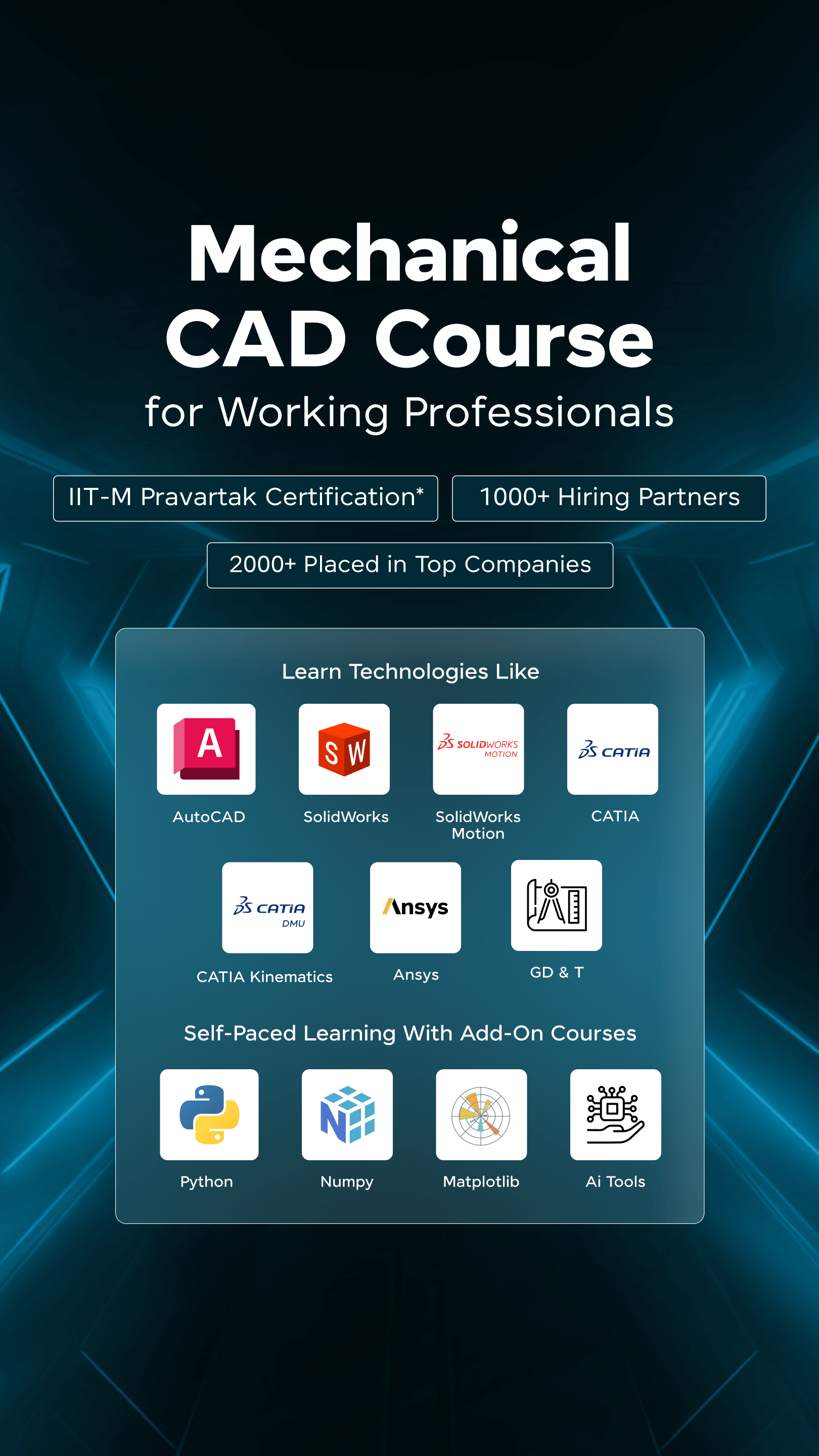




















![Top Roles and Responsibilities of a Civil Engineer [2025] 7 Feature image - Top Roles and Responsibilities of a Civil Engineer](https://www.guvi.in/blog/wp-content/uploads/2023/09/Feature-image-Top-Roles-and-Responsibilities-of-a-Civil-Engineer-1.webp)





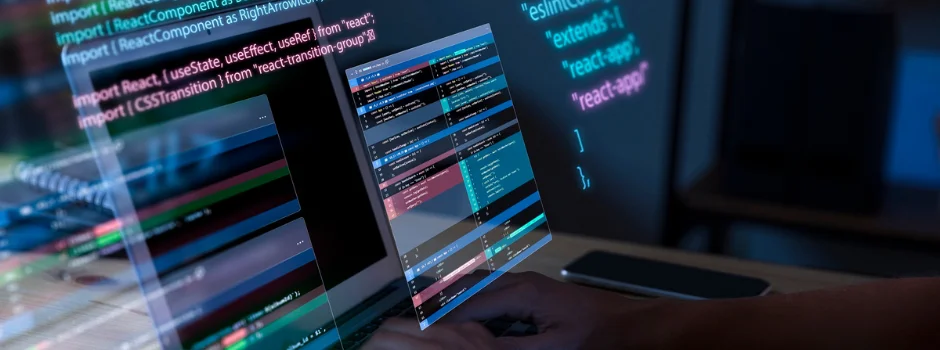


Excellent for mechanical engineering candidates who want to be career in software engineering.